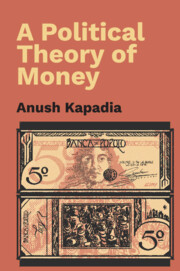11 - Europe and Democratic Funding
Published online by Cambridge University Press: 14 September 2023
Summary
Robust mutualisation at scale drives hierarchy in money; political mutualisation is more robust than economic; capitalism plus democracy requires a hybrid of both to operate.
The national state just happens to be the most robust mode of political mutualisation at present; others could emerge. The EU can be read as an experiment in a different type of political mutualisation outside the standard, federated state. Its crisis response arguably tells us something about the dimensions of all functional political mutualisations as regards money.
Responding to the credit crisis, the EU muddled through to innovate non-market, institutional sources of state finance that de-marketised government debt, limited the ability of credit markets to be sovereign counterparties and preserved state space to stabilised economies. These were secured by a de facto European fiscal compact at least at the margin. Some kind of fiscal compact and a substantial de-marketisation of sovereign debt appear to constitute institutional minima for effective robust political mutualisation, whatever institutional form they take.
Finance is constructed by law, but what, if any, are the logical bounds of the constructive power of law as regards finance? If political mutualisation is critical to functional money, what dimensions must this mutualisation have? Earlier we concluded that the mutualisation of economic contract is weaker than that of a political contract; while the former can expand to greater scale in good times, it dissolves in stressed states of the world (Pistor, 2013). Hence, states which mutualise citizen balance sheets over the largest economies have the best money. Mutualisation at scale therefore represents the logical limit of the plasticity of law in money.
The EU is an interesting intermediate case between pure economic and pure political mutualisation—a case of complex and uneven political mutualisation under conditions of its particular political settlement between national sovereigns. Intermediate cases often tell us a lot about pure ideal types. The EU's failure of crisis management was in large part a result of the infirmities introduced into its monetary institutions by its fragile political settlement. As with our other cases, the EU's failures in crisis management are instructive as they show the link between the nature of the mutualisation of a community and the money it issues.
- Type
- Chapter
- Information
- A Political Theory of Money , pp. 204 - 218Publisher: Cambridge University PressPrint publication year: 2024



